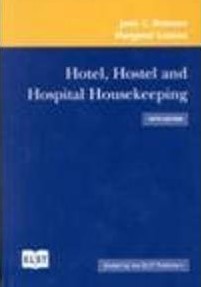Reports in Hotel Front Office
Daily Report
Revenue Report
Discrepancy Report
High Balance Report
Guest History Cards
introduction
In the hotel's front desk, reports are essential to manage operations. They support the registration, tracking, analysis, and distribution of critical data pertaining to hotel operations. Front desk employees may make well-informed decisions, uphold financial responsibility, and improve visitor happiness with accurate and timely reporting. Reports are produced every day, sometimes, or upon request to satisfy certain operational needs. The chapter concentrates on the most crucial reports utilized by the hotel front desk, including the Guest History Cards (GHC), High Balance Reports, Non-Conformity Reports, Daily Reports, and Income Reports.
1. Daily report
Day Daily Report is also known as a daily manager report or daily sales report, and is a summary of the business activities of the hotel for a particular day. It provides a snapshot of room sales, occupancy, income and other important data.
Content of a daily report:
• The quantity of rooms offered.
• The total number of rooms sold.
• The corresponding percentage
• Average daily rate (ADR)
• Revenue from lodging, food, beverages, and other sources
• Arrival and departure of guests
• Arrival of VIP guests and groups
• Cancellations and no shows
Functions:
• Assisting with budgeting and forecasting; identifying patterns and making operational decisions; and informing management of daily performance.
• The hotel's everyday operations during the summer.
• Displays income, occupancy, average room price (scars), and the number of rooms sold.
• Assists in trend identification and management monitoring.
• Staffing and space allocation are planned using Front Office Manager.
Prepared by: Front Office or Night Auditor
2. Income Report
A revenue summary, sometimes referred to as an income report, gives specifics on the money made by various hotel departments. It provides a breakdown of the revenue received from various sources.
A revenue report's contents include:
• Revenue from rooms.
• Revenue from food and drink (F&B).
• Revenue from other sources (such as parking, spa, and laundry).
• Taxes and service fees.
• Total GDP and clean income.
Functions
• Tracking financial performance.
• Ensuring payment and invoicing accuracy.
• Supporting revenue management plans.
• A breakdown of all revenue received from the various hotel divisions (rooms, food and drink, spa, etc.).
• Sources of income aid in analysis.
• Financial and accounting departments use it to evaluate profitability.
• Management offers assistance with regard to actual versus anticipated income.
Prepared by: Account Department or Night Revisor
3. Deviation Report
The distinction between the front office space's location and the household room is highlighted in a non-conformity report. This makes the precise spot more likely to be available.
Different kinds of deviations
• Sleep-out: Although the front desk occupies the space, there is a cleaning plot there.
• Skipper: The room is still recorded even if the visitor left the hotel without paying the payment.
• Tom, but not clean: The room is depicted as the front office layout, but the household has not yet cleaned it.
• Caught but not reported: Cleaning is caught, but there is no such overview of the front office.
The goal is to keep room conditions accurate to prevent duplicate bookings or lost income.
To guarantee the security and safety of visitors
Functions:
• Unmistaken emphasizes between the position of the front office space and the location of the cleaning room.
• Examples: The front office shows "possession", but the cleaning marks it as "plot".
• The guest helps identify the use of unauthorized rooms or defects in check -in/out.
• Important for safety and accurate invoicing.
Prepared by: Housekeeping and Front Office (jointly verified)
4. High Balance Report
Guests whose claims exceed a pre-established threshold established by the hotel are listed in the high balance report. It is a financial control tool used to keep an eye on internal visitors' account balances.
Content of a report on high balance:
• Names of visitors and the quantity of rooms
• Credit limit
• Current balance
• Duration of residence and mode of payment
Functions:
• Alert the front desk to any payment problems.
• Act promptly to assess visitor accounts.
• Prevent revenue loss from nonpayment.
Prepared by: Front Office Cashier or Night Auditor
5. Guest History Card (GHC)
Information about a guest's past stay at the hotel is stored in a document or digital mail called a guest history card. It is a useful tool for marketing and providing individualized guest care.
Content:
• The visitor's full name and contact details.
• Room preferences and special requests.
• Payment history.
• Faith Program description (if any).
• Most recent dates of residency.
Functions:
• Create favorable guest conditions.
• Provide individualized services and boost guest satisfaction.
• Identify repeat and VIP visitors.
• Support upcoming marketing and promotional initiatives.
Prepared by: Reservation Department or Front Desk
The hotel serves as the foundation for timely and accurate reporting. efficient management and seamless front desk operations at the hotel. Every report is crucial for managing finances, providing guest care, and resolving conflicts. In order to uphold the norms of professionalism in the hospitality industry, front desk staff should be well-versed in how to produce and analyze these reports.


FRONT OFFICE











